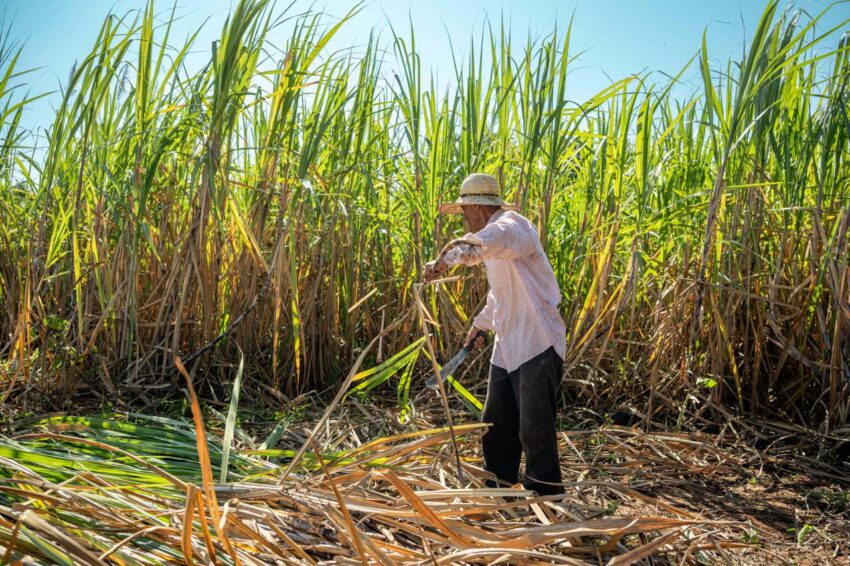SIOUX FALLS, S.D. (AP) — The price of most organic food could jump this fall due to new policies and tariffs on imported organic sugar, frustrating manufacturers who argue these measures won’t help sugar growers but could threaten the survival of some food companies.
More than 90% of the organic sugar used by U.S. manufacturers is imported. The price of this product increased in August when the Trump administration imposed steep trade tariffs, and it is expected to rise further when high-tier duties on most organic sugar imports take effect on October 1.
According to the Organic Trade Association, the price of organic sugar is anticipated to soar by an average of 30%, driving up production costs for most organic foods — from yogurt to cookies.
### Import Quotas and Tariffs Impact Supply
Each year, the U.S. imports 1,825 tons (1,656 metric tons) of specialty sugar as required under a World Trade Organization agreement. However, demand for organic sugar far exceeds this amount. To manage this, the U.S. Department of Agriculture (USDA) sets an annual quota for the amount of specialty sugar that can enter the U.S. duty-free.
Last year, the quota was 231,485 tons (210,000 metric tons) — still insufficient to meet demand. This year, the USDA’s quota effective October 1 will be zero, meaning all organic sugar imports beyond the WTO minimum will be subject to high out-of-quota duties.
The USDA has said its restrictions on specialty sugar imports aim to support the U.S. sugar industry. In response to inquiries about the new policy, the USDA released a statement saying, “The decision was not made to benefit any single entity,” and that it would continue monitoring market conditions.
### Specialty Sugar Policy Could Lead to Higher Prices
The limits on duty-free imports combined with a new 50% tariff on sugar from Brazil—which supplies 40% of the U.S.’s organic sugar—create a particularly tough situation. Organic products are already more expensive than their conventional counterparts, partly because growers must meet stringent certification requirements, including restrictions on pesticides and fertilizers.
U.S. manufacturers say buying domestic organic sugar isn’t a viable option since there is only one U.S. farm producing the specialty crop, and converting conventional farms to organic takes at least three years. They warn that the combined effect of tariffs and import caps may force them to either raise prices or reduce production.
“It’s essentially punishing domestic manufacturers for using an ingredient that we really can’t obtain domestically and don’t have any prospects of obtaining domestically anytime soon,” said Britt Lundgren, who oversees government affairs for organic yogurt maker Stonyfield.
Tom Chapman, co-CEO of the Organic Trade Association, predicts “dramatic impacts.” “The high-tier tariff is so high that we don’t see it as an absorbable rate of tariff, in addition to all the other tariffs that would apply,” Chapman added.
Most imported organic sugar will be purchased by organic food manufacturers, though some will appear on grocery shelves, where home bakers are likely to see price increases.
### U.S. Production Falls Short of Demand
Demand for organic sugar has been outpacing imports for several years, yet no new domestic producers have emerged, according to organic food manufacturers. In addition to limited production, the U.S. also has minimal organic sugar processing capacity because certified organic ingredients must be segregated from conventional ones during processing.
Whole Earth Brands, a company specializing in sweeteners, anticipates a 100% increase in organic sugar costs, said company president Nigel Willerton. “We supply every major supermarket in the U.S. and natural food stores. We’ll see our prices go up quite considerably. There’s nothing we can avoid there,” he stated.
How much prices change will depend on how much sugar is used in each product. Sweeteners made almost entirely from organic sugar are likely to experience larger price increases than dairy products, where organic sugar is a minor ingredient.
### Higher Costs May Force Some Businesses to Shut Down
Many organic food manufacturers are small businesses sensitive to input cost increases, Willerton explained. Some may lack the profit margins to absorb the rising costs, and finding substitutes for organic sugar would require product reformulation.
“We’ve got lots of small companies involved in this business,” Willerton said. “These small premium companies producing these products are literally going to find themselves priced out of the market.”
The U.S. government has historically played a significant role in sugar production through policies setting minimum prices and providing generous loan programs. Still, Chapman expressed confusion over the USDA’s current approach.
“When we looked at the USDA announcements, they talked about domestic sugar shrinking and mills closing,” Chapman said. “There’s only one mill. It was in operation before, and it’s in operation now.”
Florida Crystals Corporation, the only organic sugar producer in the U.S., supplies about 8% of the U.S. organic sugar market — up from roughly 2% a decade ago. Marianne Martinez, the company’s spokesperson, described the USDA’s new specialty sugar policy as “encouraging” and said it “could result in an increase in U.S.-grown and milled organic cane sugar production if it becomes a long-term policy.”
For now, the USDA has not announced additional initiatives to support organic growers.
https://fox5sandiego.com/news/world-news/ap-international/ap-organic-food-prices-could-soar-as-us-imposes-import-restrictions-and-new-tariffs-on-specialty-sugar/
